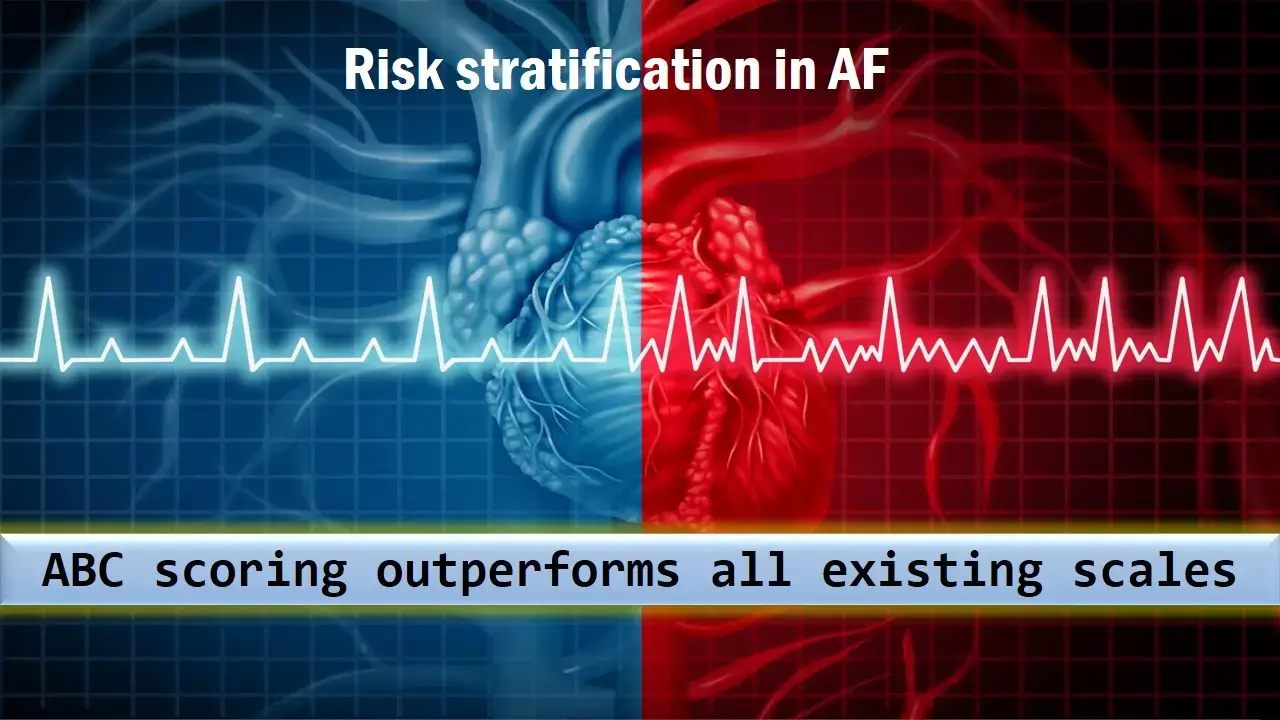- Home
- Medical news & Guidelines
- Anesthesiology
- Cardiology and CTVS
- Critical Care
- Dentistry
- Dermatology
- Diabetes and Endocrinology
- ENT
- Gastroenterology
- Medicine
- Nephrology
- Neurology
- Obstretics-Gynaecology
- Oncology
- Ophthalmology
- Orthopaedics
- Pediatrics-Neonatology
- Psychiatry
- Pulmonology
- Radiology
- Surgery
- Urology
- Laboratory Medicine
- Diet
- Nursing
- Paramedical
- Physiotherapy
- Health news
- Fact Check
- Bone Health Fact Check
- Brain Health Fact Check
- Cancer Related Fact Check
- Child Care Fact Check
- Dental and oral health fact check
- Diabetes and metabolic health fact check
- Diet and Nutrition Fact Check
- Eye and ENT Care Fact Check
- Fitness fact check
- Gut health fact check
- Heart health fact check
- Kidney health fact check
- Medical education fact check
- Men's health fact check
- Respiratory fact check
- Skin and hair care fact check
- Vaccine and Immunization fact check
- Women's health fact check
- AYUSH
- State News
- Andaman and Nicobar Islands
- Andhra Pradesh
- Arunachal Pradesh
- Assam
- Bihar
- Chandigarh
- Chattisgarh
- Dadra and Nagar Haveli
- Daman and Diu
- Delhi
- Goa
- Gujarat
- Haryana
- Himachal Pradesh
- Jammu & Kashmir
- Jharkhand
- Karnataka
- Kerala
- Ladakh
- Lakshadweep
- Madhya Pradesh
- Maharashtra
- Manipur
- Meghalaya
- Mizoram
- Nagaland
- Odisha
- Puducherry
- Punjab
- Rajasthan
- Sikkim
- Tamil Nadu
- Telangana
- Tripura
- Uttar Pradesh
- Uttrakhand
- West Bengal
- Medical Education
- Industry
New biomarker-based ABC score outperforms traditional scoring systems for risk stratification in AF, Circulation.

For risk assessment and consequent anticoagulant use in atrial fibrillation(AF), biomarker-based ABC (Age, Biomarkers, Clinical History) scoring system has outperformed the conventional CHADS-VASc and HAS-BLED scores in recent trials where it was validated in patients already on anticoagulation therapy. To expand the universal utility of this novel scoring system, Benz et al have now evaluated its use in improving risk stratification in AF patients who are not candidates for anticoagulation therapy by conventional scoring systems. In their study published in Circulation, it was found that ABC-AF scores showed better discrimination than traditional risk scores and were recalibrated for precise risk estimation in these patients.
The main purpose of this study was to evaluate discrimination, calibration, and prognostic utility of the ABC-AF-stroke, ABC-AF-bleeding, and ABC-AF-death scores in patients with AF not receiving oral anticoagulation. In addition, the ABC-AF scores were compared with the currently guideline-recommended and widely used CHA2DS2-VASc and HAS-BLED scores.
They evaluated the ABC-AF scores in patients randomized to receive antiplatelet therapy, but not oral anticoagulation, in the ACTIVE A and AVERROES trials.
The ABC-AF-stroke score yielded a c-index of 0.70 in both cohorts. The ABC-AF-bleeding score had a c-index of 0.76 in the aspirin only cohort and 0.73 overall. Both scores were superior to risk scores recommended by current guidelines. The ABC-AF-death score yielded a c-index of 0.78 overall.
In order to predict absolute event rates in the absence of oral anticoagulation and to provide optimal clinical utility, the ABC-AF-stroke and ABC-AF-bleeding scores were successfully recalibrated. The ABC-AF scores can now, for the first time, provide decision support based on more precise estimates of expected event rates, with and without oral anticoagulation, in an individual patient with AF.
Both North American and European guidelines for the management of AF recommend the CHA2DS2-VASc score to guide initiation of long-term oral anticoagulant therapy. However, this score has shown only modest discrimination in both the derivation and several validation studies.
Since the original presentation of the CHA2DS2-VASc and HAS-BLED scores, the incremental prognostic value of the cardiac biomarkers NT-proBNP and cTnT for the risk of stroke and the oxidative stress and aging marker GDF-15 for the risk of bleeding and all three for the risk of death have been demonstrated in three very large studies of more than 30,000 well-characterized patients enrolled and randomized to different oral anticoagulant regimens in the RE-LY, ARISTOTLE and ENGAGE AF-TIMI 48 trials.
The superiority of the biomarker-based ABC-AF scores stems from their consistent use of continuous variables without arbitrary cut-off values, and biomarkers potently reflecting pathophysiological processes related to myocardial dysfunction, thrombogenicity, inflammatory activity and biological aging.
"The present study validates the ABC-AF-stroke, ABC-AF-bleeding and ABC-AF-death scores for risk estimation in two large cohorts of patients with AF not receiving oral anticoagulation. The ABC-AF scores can now provide improved decision support regarding treatment of an individual patient with AF", concluded the authors.
Source: Circulation journal: https://www.ahajournals.org/doi/abs/10.1161/CIRCULATIONAHA.120.053100?af=R
MBBS, MD , DM Cardiology
Dr Abhimanyu Uppal completed his M. B. B. S and M. D. in internal medicine from the SMS Medical College in Jaipur. He got selected for D. M. Cardiology course in the prestigious G. B. Pant Institute, New Delhi in 2017. After completing his D. M. Degree he continues to work as Post DM senior resident in G. B. pant hospital. He is actively involved in various research activities of the department and has assisted and performed a multitude of cardiac procedures under the guidance of esteemed faculty of this Institute. He can be contacted at editorial@medicaldialogues.in.
Dr Kamal Kant Kohli-MBBS, DTCD- a chest specialist with more than 30 years of practice and a flair for writing clinical articles, Dr Kamal Kant Kohli joined Medical Dialogues as a Chief Editor of Medical News. Besides writing articles, as an editor, he proofreads and verifies all the medical content published on Medical Dialogues including those coming from journals, studies,medical conferences,guidelines etc. Email: drkohli@medicaldialogues.in. Contact no. 011-43720751


